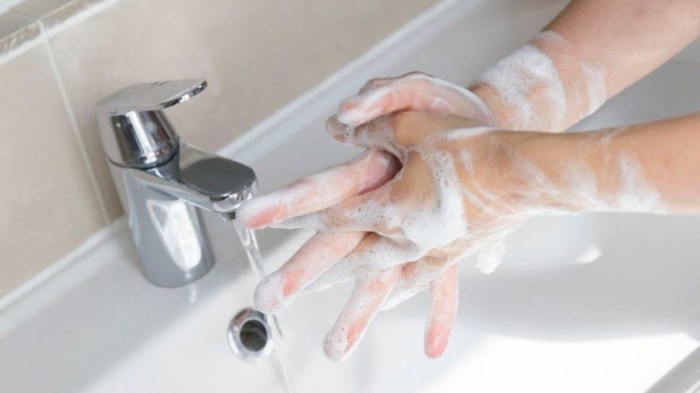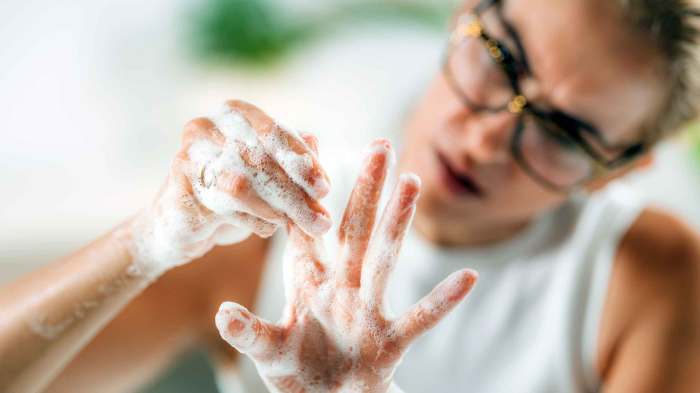Which of the following most clearly illustrates an obsessive-compulsive disorder (OCD)? OCD is a mental health condition characterized by persistent, unwanted thoughts (obsessions) and repetitive behaviors (compulsions) that a person feels the urge to perform. This article explores the manifestations, diagnostic criteria, and treatment options for OCD, providing a comprehensive understanding of this complex disorder.
OCD can manifest in various ways, including excessive cleaning rituals, compulsive checking behaviors, and intrusive thoughts that cause significant distress and impairment in daily life. The diagnostic criteria for OCD involve the presence of obsessions, compulsions, and associated distress or impairment.
Treatment options for OCD include evidence-based therapies such as Cognitive Behavioral Therapy (CBT) and Exposure and Response Prevention (ERP), as well as medication.
Definition of Obsessive-Compulsive Disorder (OCD)

Obsessive-Compulsive Disorder (OCD) is a mental health condition characterized by persistent, intrusive, and unwanted thoughts (obsessions) and repetitive behaviors (compulsions) that the individual feels compelled to perform.
OCD can manifest in various forms, ranging from excessive handwashing and cleaning rituals to checking behaviors, symmetry and order obsessions, and hoarding.
Diagnostic Criteria for OCD
According to the Diagnostic and Statistical Manual of Mental Disorders, Fifth Edition (DSM-5), the diagnostic criteria for OCD include:
- Presence of obsessions, compulsions, or both
- The obsessions or compulsions cause significant distress or impairment in functioning
- The obsessions or compulsions are not attributable to the physiological effects of a substance or another medical condition
Manifestations of OCD

OCD can manifest in various ways, including:
- Contamination obsessions and cleaning compulsions:Excessive fear of germs or contamination, leading to frequent handwashing, showering, or cleaning rituals
- Symmetry and order obsessions and arranging compulsions:Need for symmetry, order, or precision, resulting in repetitive arranging or checking behaviors
- Harm obsessions and checking compulsions:Intrusive thoughts about harming oneself or others, accompanied by excessive checking behaviors (e.g., checking locks, appliances)
Treatment Options for OCD
Evidence-based treatments for OCD include:
- Cognitive Behavioral Therapy (CBT):Therapy that focuses on identifying and changing negative thought patterns and behaviors that contribute to OCD
- Exposure and Response Prevention (ERP):Therapy that involves gradually exposing individuals to feared situations or objects while preventing them from performing compulsive behaviors
- Medication:Selective serotonin reuptake inhibitors (SSRIs) are commonly used to reduce symptoms of OCD
Impact of OCD on Individuals: Which Of The Following Most Clearly Illustrates An Obsessive-compulsive Disorder

OCD can have a significant impact on individuals’ lives, causing:
- Psychological impairments:Anxiety, depression, low self-esteem, and impaired cognitive functioning
- Social impairments:Difficulty forming and maintaining relationships due to excessive preoccupation with OCD symptoms
- Occupational impairments:Difficulty concentrating, completing tasks, and maintaining employment
Comorbidities Associated with OCD

OCD frequently co-occurs with other mental health conditions, including:
- Anxiety disorders:Generalized anxiety disorder, panic disorder, and social anxiety disorder
- Mood disorders:Depression and bipolar disorder
- Substance use disorders:Alcohol and drug use
FAQ Summary
What are the common obsessions and compulsions associated with OCD?
Common obsessions include fears of contamination, symmetry, order, and harm. Common compulsions include excessive cleaning, checking, arranging, and repeating certain actions.
How is OCD diagnosed?
OCD is diagnosed based on the presence of obsessions, compulsions, and associated distress or impairment that meet specific criteria Artikeld in the Diagnostic and Statistical Manual of Mental Disorders (DSM-5).
What are the effective treatments for OCD?
Effective treatments for OCD include Cognitive Behavioral Therapy (CBT), Exposure and Response Prevention (ERP), and medication, such as selective serotonin reuptake inhibitors (SSRIs).